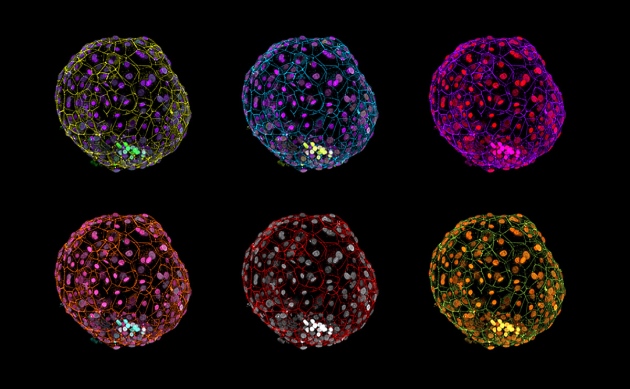A two-week human embryo was first grown in the laboratory.

For the first time, scientists from Cambridge were able to support the growth of a human embryo in the laboratory during the first two weeks of its development. Previously, it was possible to do this outside the uterus for no more than nine days, after which the embryo died. In this case, the initial stage of its development contains the most mysteries for scientists.
Using the cultivation method tested previously on the embryos of mice, the scientists were able to observe the hourly development of the embryo, its initial growth and self-organization, up to the 13th day. Scientists deliberately interrupted the experiment, because the current rules for working with human embryos that exist in a dozen countries, including the United States and the United Kingdom, prohibit people from conducting research on human embryos for more than 14 days from the start of their development.
“This is the most mysterious and mysterious stage of human development,” explains Magdalena Zernicka-Goetz, co-author of the work. “At this time, the main body shape is determined.”
')
Scientists, for example, managed to establish that on the 10th day of the development of the embryo a cellular structure appears, which completely disappears after 2 days. At the peak of its growth, it takes 5-10% of the entire embryo. Scientists have so far suggested that this is some kind of transit organ, like a tail, which develops in the later stages of embryo growth and then is lost.
“The development of the embryo is an extremely complex process, and although our system is not able to reproduce every aspect of this process, it allowed us to discover the tremendous ability to organize it, which was not previously known,” Marta Shahbazi, one of the members, admires. research team.
Researchers are confident that the information they receive will help to improve in vitro fertilization procedures (out-of-body fertilization, IVF) - about 50% of fertilized eggs placed in the uterus do not survive. They can also help in the development of regenerative medicine, and understand the causes of unsuccessful pregnancies.
At the moment, there is a limitation for biologists - they cannot support the growth of human embryos in laboratories for more than 14 days. Now, when real experiments have come close to this legal barrier, experts are awaiting a review of this restriction.
Zernica-Goetz is confident that only a few additional days available for studying embryos will lead to a huge amount of new valuable information. At the same time, she admits that this will raise the question of where to stop in the process of increasing limits.
Source: https://habr.com/ru/post/393643/
All Articles